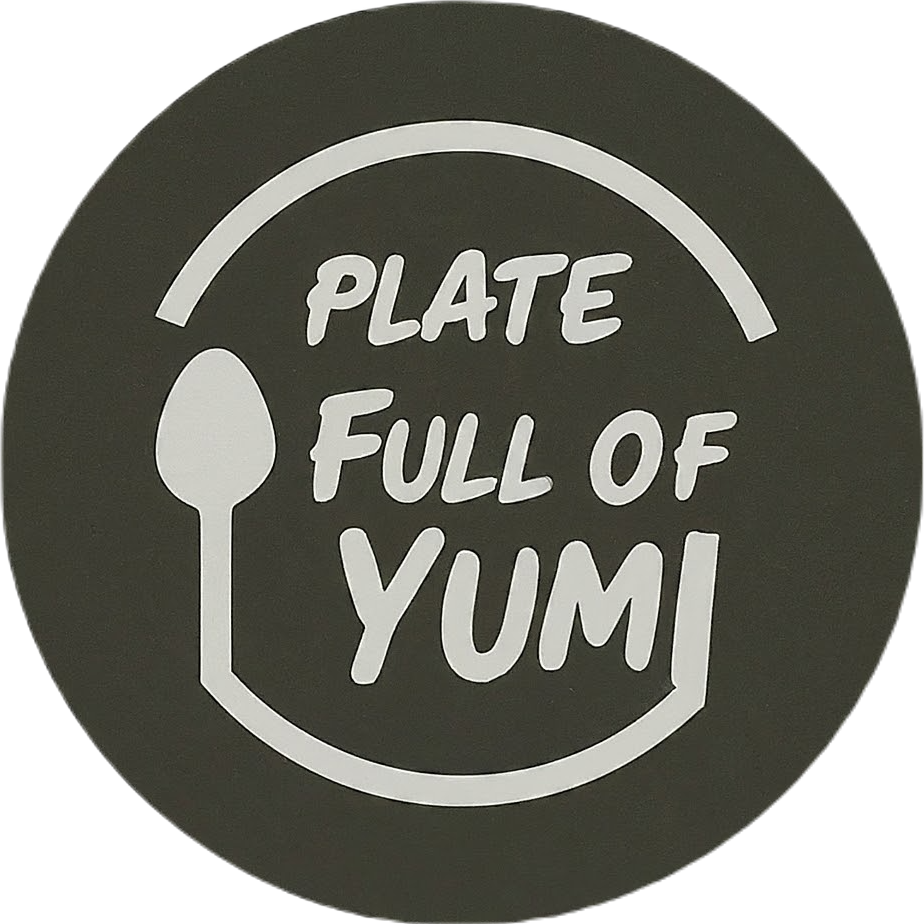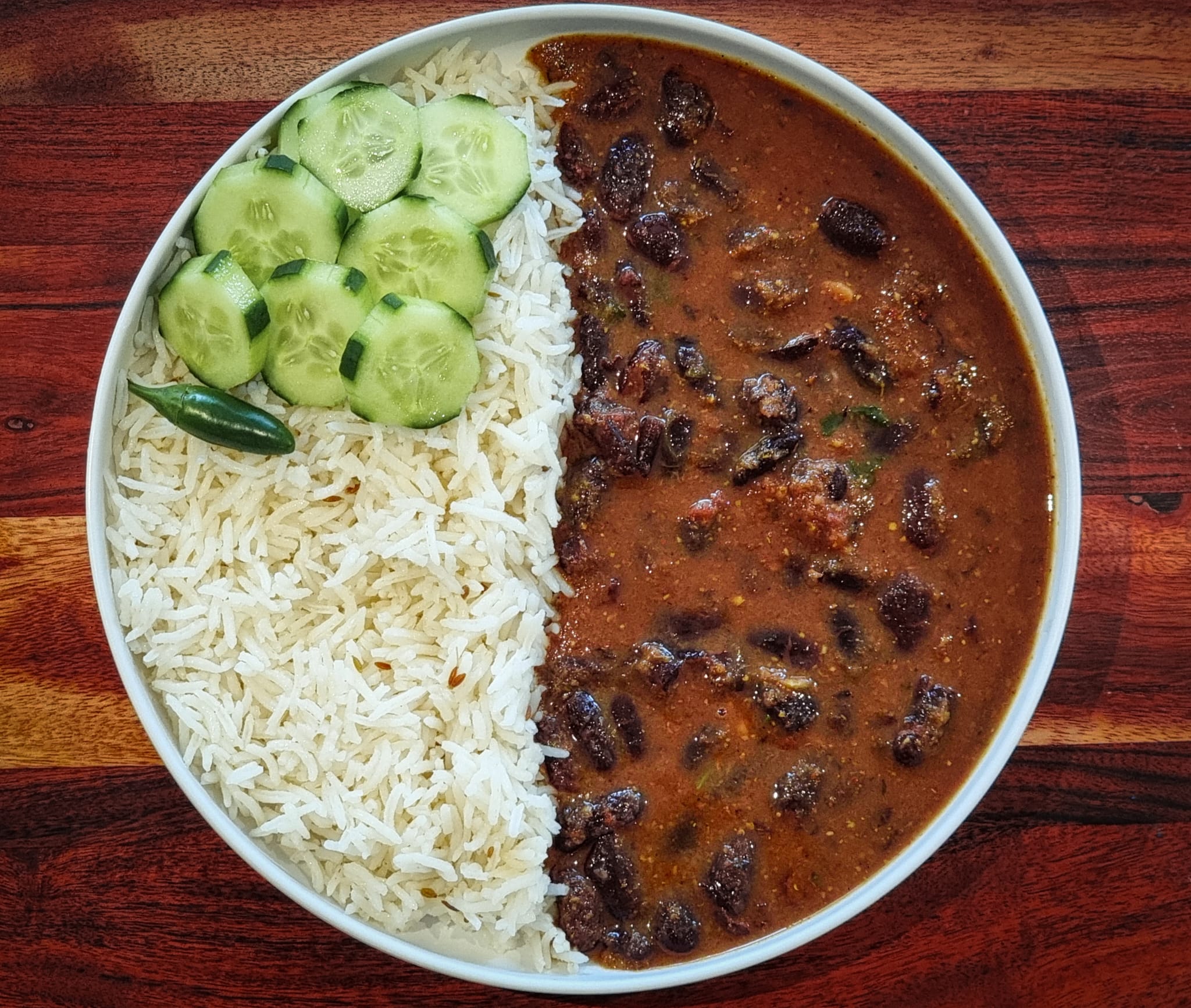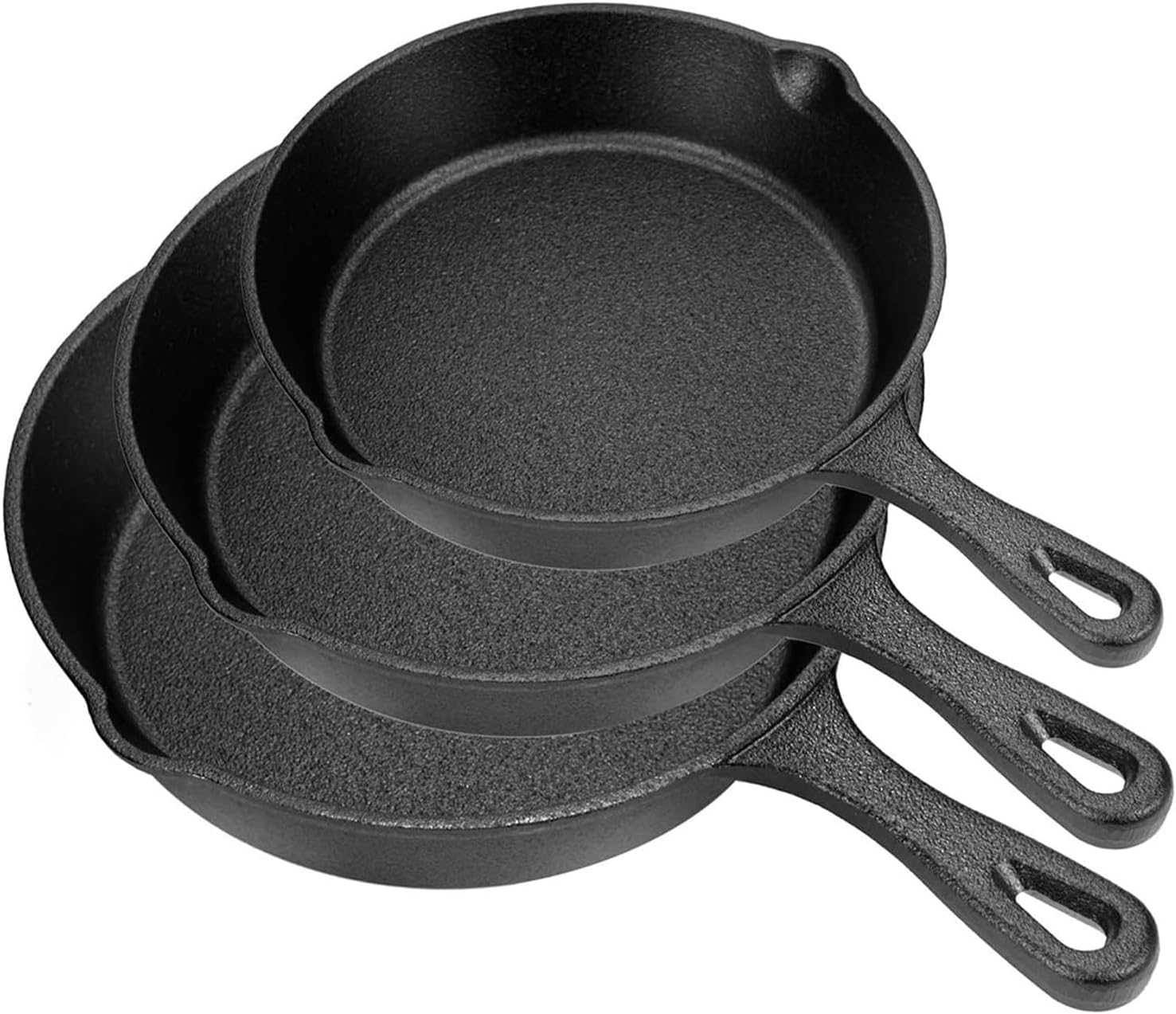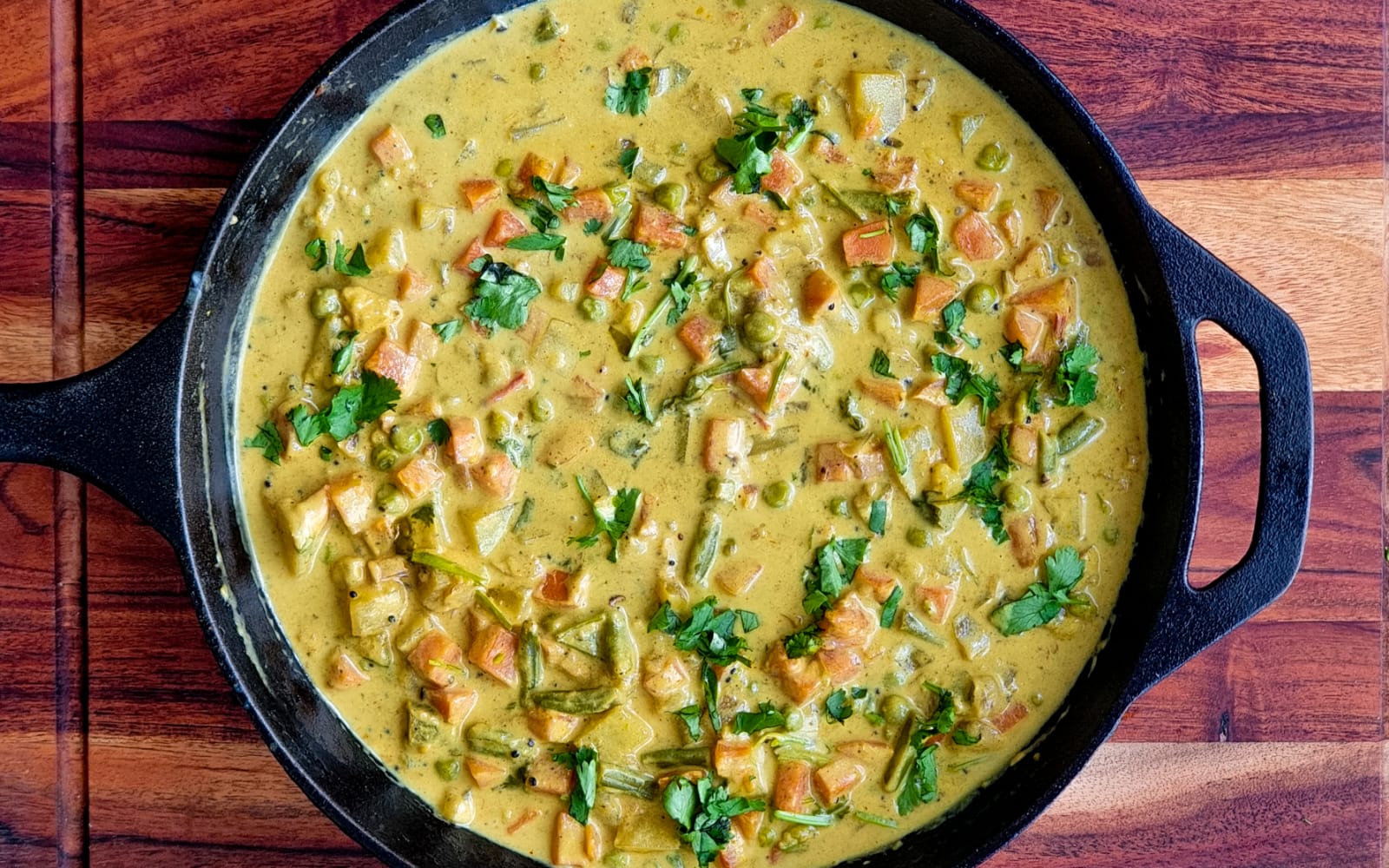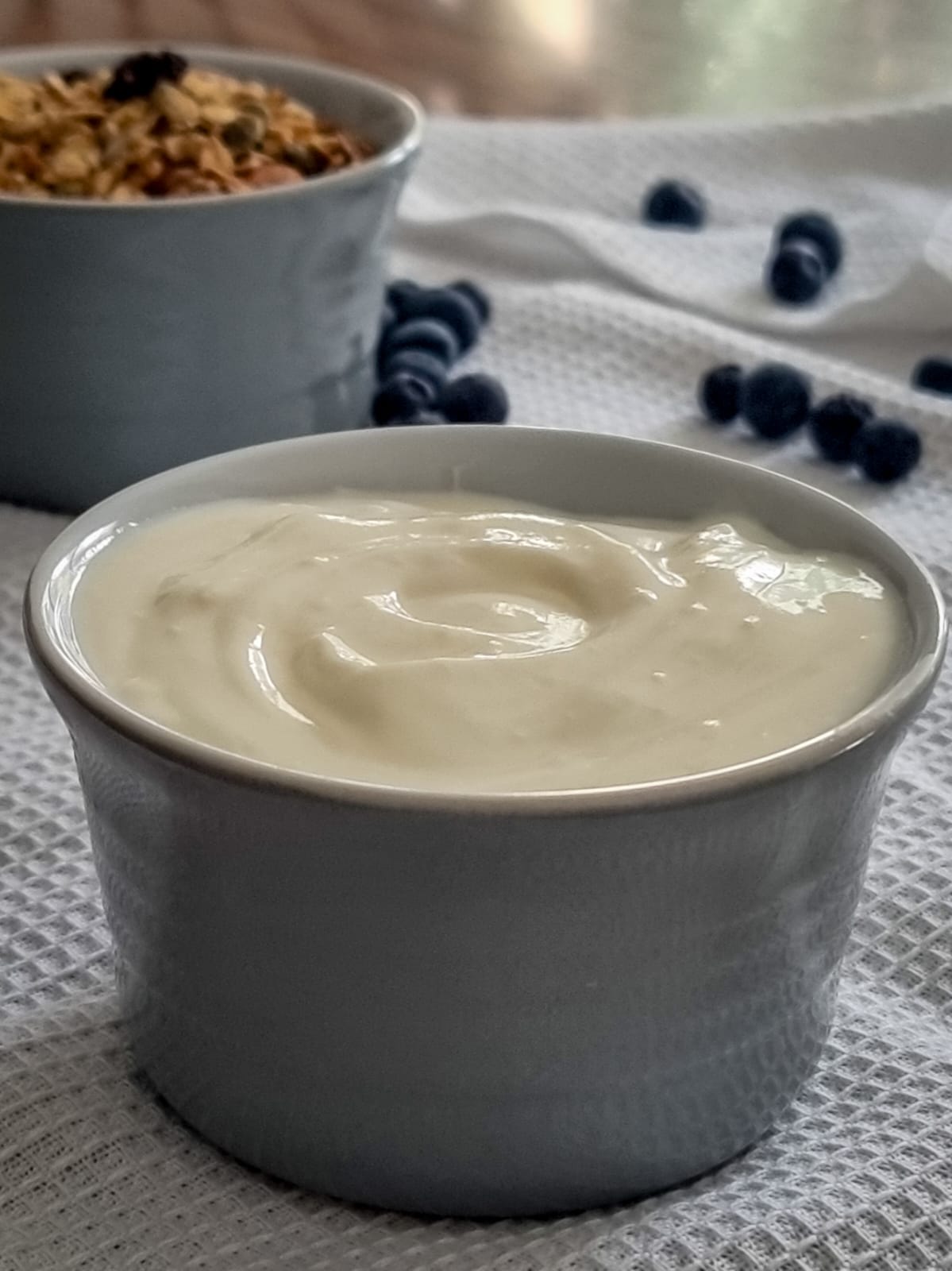Rajma Chawal. Just the name brings a sense of comfort, doesn’t it? In most Indian homes—including mine—it’s not just food, it’s an emotion. Rajma (red kidney beans) cooked in a luscious, spiced tomato-onion gravy, served over warm rice… it’s not only simple but also hearty, and hits all the right notes.
When I moved to Bengaluru for my first job, it was a whole new world. Not just the independence, but the food from all over India! The city had these lovely little eateries tucked into busy lanes, often run by these lovely ladies serving home-style meals. Each day had a different menu—always fresh, always made with care. It was from one such tiny place near my office that I had my very first taste of Rajma Chawal. One spoonful, and I was sold. It was cozy, comforting, and completely blissful. Naturally, I had to learn it! Back in the PG I stayed at, I asked my friends how to make it—and that’s where my journey with this recipe began. 😊
It doesn’t take a master chef to make a good rajma. With a few pantry staples, a handful of whole spices, some homemade garam masala and a little bit of patience, you can whip up this North Indian classic in no time. Kidney beans are not just tasty—they’re rich in plant protein, fiber, and iron, which makes rajma a win for your taste buds and your body. Pair that with steaming hot rice, and you’ve got a wholesome, satisfying meal that works beautifully for both weekday dinners and lazy weekend lunches.
The best part?
Rajma Chawal is super versatile. You can serve it with jeera rice, plain basmati, or even scoop it up with warm rotis. The spices—like cumin, cinnamon, and garam masala—don’t just add flavor, they add depth. A sprinkle of kasoori methi and a handful of fresh coriander at the end ties everything together and makes your kitchen smell amazing.
Let’s dive into this rajma recipe that’s always on standby in my kitchen, especially when I need something warm, simple, and made with love.

Rajma
A rich and flavorful rajma recipe, best enjoyed with rice.
Ingredients
- 1 cup dried red kidney beans (rajma), soaked for 8 hours
- 2 cups water (for pressure cooking)
- 1 large red onion or 2 medium onions, roughly chopped
- 1 tomato, roughly chopped
- 1-inch ginger, peeled
- 3-4 garlic cloves
- 2 tbsp vegetable oil
- 1 bay leaf
- 1-inch cinnamon stick
- 1/2 tsp cumin seeds
- 2 cloves
- 1/4 tsp turmeric powder
- 1 tsp Kashmiri chili powder
- 1/2 tsp coriander powder
- 1 tsp garam masala powder
- 1 tsp salt (or to taste)
- 1 tbsp crushed kasoori methi
- 2 tbsp chopped fresh coriander leaves
Instructions
- Pressure Cook the Beans: Drain the soaked kidney beans. Add them to a stovetop pressure cooker or Instant Pot with 2 cups of water. Cook for 4-5 whistles (stovetop) or set the Instant Pot to 15 minutes. Let the pressure release naturally.
- Prepare the Base: Blend onions, tomato, ginger, and garlic into a smooth paste. In a heavy-bottomed pan or wok, heat oil. Add bay leaf, cinnamon stick, cumin seeds, and cloves. Sauté until aromatic.
- Add the onion-tomato paste to the oil. Cook until the oil starts to leave the sides. Add turmeric, Kashmiri chili powder, coriander powder, and garam masala. Mix and cook for 2-3 minutes.
- Combine & Simmer: Add the cooked rajma along with the water. Stir well. Bring it to a rolling boil.
Let it simmer for 10 minutes, uncovered. gently stir in between. Check the salt and adjust according to taste - Finish & Serve: Sprinkle chopped coriander leaves and crushed kasoori methi. Mix and turn off the heat.
Serve hot with rice,
Recommended Products
As an Amazon Associate and member of other affiliate programs, I earn from qualifying purchases.
Nutrition Information:
Serving Size: 1 cupAmount Per Serving: Calories: 230Total Fat: 5gCarbohydrates: 38gFiber: 10gProtein: 12g
Craving more comforting Indian recipes? You might also love this palak dal recipe or find out more of such easy recipes here
Ready to make your house smell like home? I’d love to hear how it turned out! Leave a comment, rate the recipe, or tag me on Instagram @Platefullofyumm with your version of Rajma Chawal. Don’t forget to share it with your fellow foodies!
